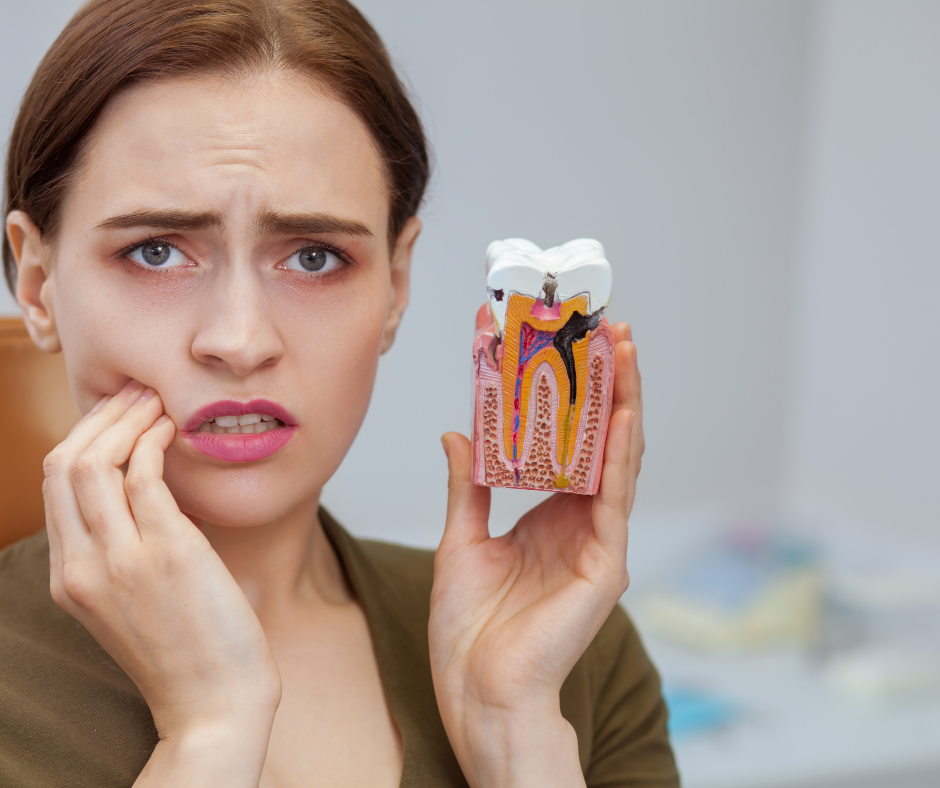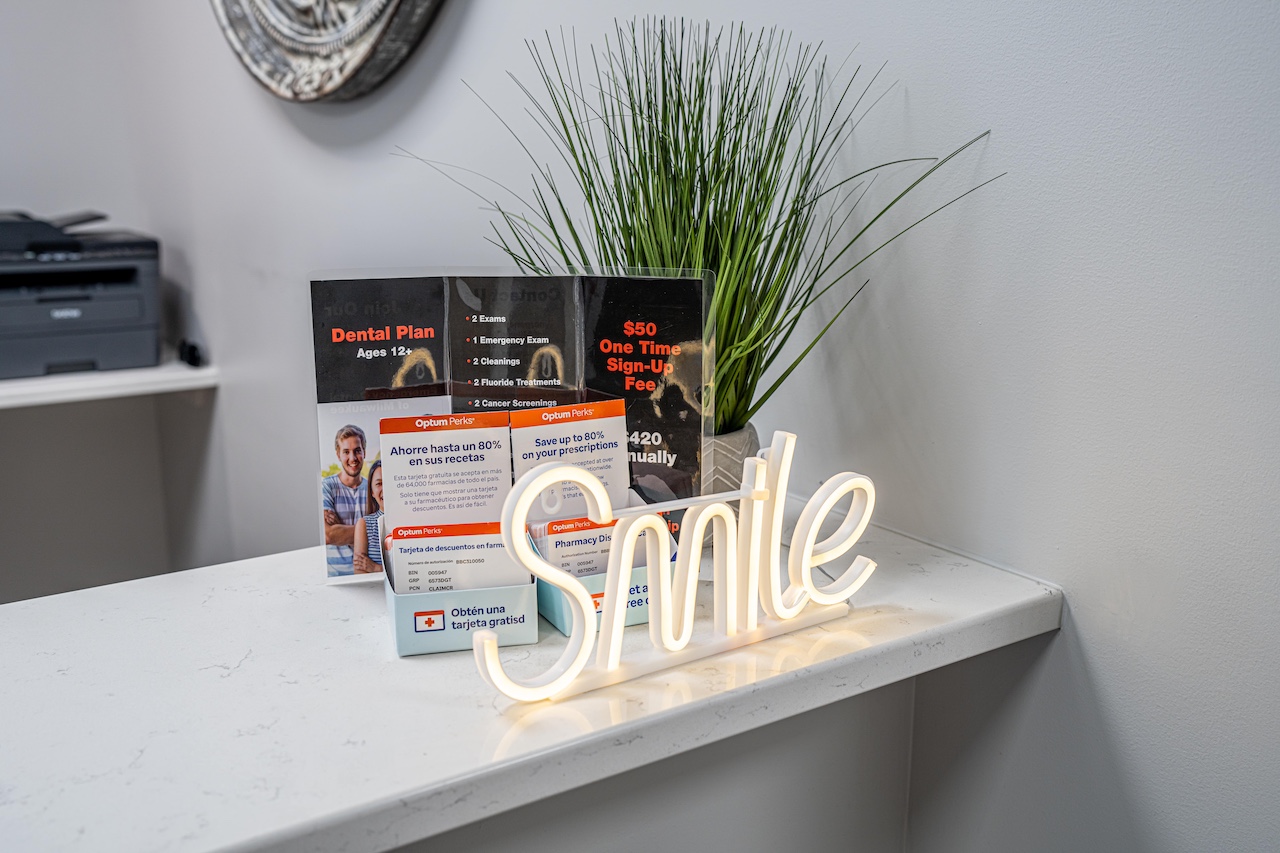Why Do I Have Cavities?
Causes and Prevention Tips from Emergency Dental of Nashville
Cavities, or dental caries, are among people’s most common oral health issues. Whether you’re experiencing sensitivity pain or have noticed a dark spot on your tooth, you may wonder, “Why do I have cavities?” Understanding the causes of cavities is key to preventing them and maintaining good oral health. At Emergency Dental of Nashville, we’re here to help you know how cavities form and what you can do to avoid them.
What Causes Cavities?
Cavities occur when acids from food, drinks, and bacteria in your mouth attack the enamel, the hard outer layer of your teeth. Over time, this process can cause the enamel to break down, leading to holes or cavities in your teeth. Several factors contribute to cavity formation, and knowing these can help you protect your teeth.
1. Poor Oral Hygiene
The most common cause of cavities is poor oral hygiene. If you don’t brush and floss your teeth regularly, plaque—a sticky film of bacteria—begins to build up. When plaque is left on your teeth for too long, it turns into tartar, which can only be removed by a dentist. Plaque and tartar contribute to the acid that eats away at your enamel, leading to cavities.
2. Diet and Sugar Consumption
What you eat plays a significant role in your dental health. Foods and drinks high in sugar and starches, like candy, soda, and bread, fuel the bacteria in your mouth. These bacteria produce acid as they digest sugar, weakening your enamel. Constant snacking, especially on sugary foods, provides a steady supply of fuel for cavity-causing bacteria.
3. Dry Mouth
Saliva is your mouth’s natural defense against cavities. It helps wash away food particles and neutralize acids produced by bacteria. If you suffer from dry mouth due to medication, health conditions, or dehydration, your risk of cavities increases. Without adequate saliva flow, bacteria and food particles stay in your mouth longer, leading to tooth decay.
4. Tooth Location and Anatomy
Some teeth are more prone to cavities than others. Molars, the back teeth, have deep grooves that trap food and bacteria. If these grooves are not properly cleaned, cavities can form. Additionally, crooked teeth or misalignment can make it harder to clean specific areas, increasing the likelihood of cavities.
5. Age and Genetics
Both your age and genetic factors can affect your risk for cavities. Your enamel naturally wears down as you age, making your teeth more vulnerable to decay. Additionally, genetics can determine how strong your enamel is and how quickly it may erode. If your parents had cavities, there may be a higher chance you will experience them as well.
Preventing Cavities: What You Can Do
While cavities are a common problem, the good news is they are typically preventable. With a few simple habits, you can significantly reduce your risk of developing cavities.
1. Brush and Floss Regularly
Brush your teeth at least twice daily with fluoride toothpaste and floss once daily. Fluoride helps strengthen enamel and fight cavities. Don’t forget to clean your tongue, as bacteria can hide there too.
2. Limit Sugary and Acidic Foods
Try to limit your consumption of sugary and acidic foods. If you indulge, brush your teeth afterward or rinse with water to help neutralize acids. Avoid consuming sugary foods throughout the day, as this keeps bacteria constantly feeding on sugar.
3. Stay Hydrated
Drink plenty of water to help keep your mouth hydrated and wash away harmful bacteria. Water also helps stimulate saliva production, which protects your teeth from decay.
4. Visit Your Dentist Regularly
Regular dental checkups are essential for maintaining good oral health. Your dentist can catch cavities early before they worsen. Professional cleanings remove tartar and plaque buildup that regular brushing can’t.
5. Consider Dental Sealants
If you’re prone to cavities or have deep grooves in your teeth, talk to your dentist about dental sealants. These thin protective coatings can be applied to the chewing surfaces of molars to help prevent food and bacteria from getting stuck.
FAQ Section
Q: How can I tell if I have a cavity?
A: Common signs of cavities include tooth sensitivity, chewing pain, visible holes or dark spots on your teeth, and a constant bad taste in your mouth. If you experience any of these symptoms, seeing a dentist is important.
Q: Can cavities heal on their own?
A: Unfortunately, cavities do not heal on their own. However, with proper treatment from your dentist, cavities can be repaired with fillings.
Q: Are cavities only caused by sugar?
A: While sugar is a major culprit, cavities can also be caused by acidic foods, poor oral hygiene, and other factors like genetics. Any substance contributing to plaque buildup or weakening enamel can lead to cavities.
Q: Can cavities affect my overall health?
A: Untreated cavities can lead to more serious dental issues, such as infections or abscesses. In some cases, untreated infections can spread to other areas of the body, leading to complications.
Conclusion: Protect Your Smile from Cavities
Cavities are a common yet preventable dental issue. Understanding the causes and taking proactive steps to maintain good oral hygiene, limit sugary foods, stay hydrated, and visit your dentist regularly can protect your teeth from decay. If you suspect you have a cavity or are due for a checkup, don’t wait—contact Emergency Dental of Nashville today to schedule an appointment. We’re here to help keep your smile healthy and bright for years!
Stay up-to-date with the latest in dental health and wellness by connecting with us on social media! Follow us on Instagram and Facebook for regular updates, tips, and insights to keep your smile bright and healthy. Join our community today and be a part of our journey towards better oral health.

